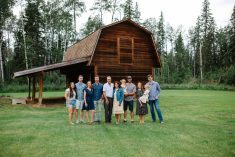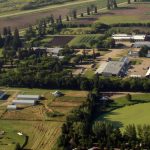We see a lot of farming clients who, at the end of a call, will say, “We should get together to discuss our succession plan sometime.” But actually getting started requires intentional effort from the decision makers in the family.
The first step is making the succession plan a priority. Succession planning is more than just the transfer of assets, it is also the transfer of responsibility and decision-making, and the sharing or transferring of the physical work. It’s important to begin early.
Legal considerations at the outset
Read Also

How scientists are using DNA and climate data to breed crops of the future
A method for forecasting how crops will perform in different environments so that plant breeders can quickly select the best parents for new, climate-resilient varieties.
History plays an important role in succession planning. As later generations inherit the succession plans from their parents and turn around to create their own plans, we are finding a lot more complications come about. Control and assets are passing at different times. Existing agreements, such as partnership, trust and shareholder agreements, can become burdensome for future succession plans. We also find that a lot of farmers may not fully understand the paths that their advisors have put them on, or how they can end up being “stuck” going in a certain direction with their plan.
As lawyers, we have adjusted our approach to succession planning. Instead of getting involved at the end to draft documents and prepare the plans, we encourage our clients to get us involved earlier to ensure they are on the right path from the outset. This involves reviewing existing operating agreements, wills and other legal documents, and providing guidance to other advisors on the restrictions created by past plans.
We will often recommend putting a will in place that gives effect to the overall plan early on in case it takes a year or two (or more) to finalize all of the pieces of a plan. Lastly, we sit down and explain the legal ramifications and operations of a succession plan in multiple meetings to ensure there is full understanding and buy-in from all of the interested parties. We do our best to drop the legal speak and explain the intricacies of plans in straightforward language. It is important for your advisors to be able to ensure that everyone fully understands what is being implemented on your behalf.
Who are the interested parties?
The first task when beginning the succession planning process is to determine who are the interested parties or stakeholders in the farming operation and family. Interested parties can be members of the family, such as parents, children and siblings or they can be third parties, such as key employees of the operation, professional advisors and even neighbours. Open and honest communication amongst all interested parties is critical to getting the ball rolling with a plan. This will allow each person to share their values and their expectations as well as their personal goals.
There are some key questions each interested party should answer to determine their involvement in the operation, such as:
- What is each person’s role in the current operation?
- What are each person’s strengths and weaknesses?
- Are there any personality conflicts between any of the parties?
- What are the family business dynamics?
- What are the personal goals and expectations of the individual parties?
- Does any party have any non-negotiables?
Answering these questions will help determine (1) what is the best role for each interested party, (2) whether multiple family members can work together and (3) what structure can be put in place to accommodate competing priorities. If there are conflicts amongst certain family members, that affects the family business dynamics and consideration will need to be made for potential separate divisions or to separate the operation completely. If one person’s strength is livestock and another is cash crop, labour can be split. Or if someone is better at marketing and another at mechanics, they can manage their separate departments but every person should have and know their roles.
What is the scope of the farming operation?
The next step would be determining the scope of the farming operation and evaluating its strengths and weaknesses. Is the operation fully cash crop? Any livestock? Any other divisions of the operation? Are its resources being fully utilized?
The size and assets of the operation need to be evaluated. A list should be put together of all the assets and debts of the farming operation. This would include deeds for real property and financial information (i.e., financial statements, bank records, etc.). The viability and profitability of the farm business needs to be analyzed.
An important question also needs to be asked: Is there enough income to support everyone? For many famers and their families, this is a pivotal moment. Not everyone who wants to farm will have that opportunity.
The potential for future income generation should not be overstated in this step. Based on the age of the family members, there may be time to implement a plan but if parents are ready to retire, a plan will need to be determined in a short period of time.
Make a decision
The last step when getting started will be to generate options for a decision. We generally like to have three potential plans for consideration. The favoured plan may not be as attractive after a detailed analysis, so it is important to have a backup plan or two. There will be other considerations that go into the decision, such as tax considerations and if applicable, how to treat the non-farming family members. There will also be aspects of the plan to be implemented in the short term and others in the long term, which should be evaluated on an ongoing basis.
Professionals such as accountants, lawyers and financial advisors should be involved to help create options. Each professional plays a different role. For example, lawyers can provide advice on business structures, purchases, sales and leases. They can also create and review the agreement and the required documentation for the transition, and they can update wills and powers of attorney.
Jon Barnett and Ashley Podolinsky are lawyers with McKenzie Lake Lawyers located in London, Ont. with offices also in Guelph. Both have extensive experience with agribusiness and succession planning. For full details, please view their biographies at mckenzielake.com.















